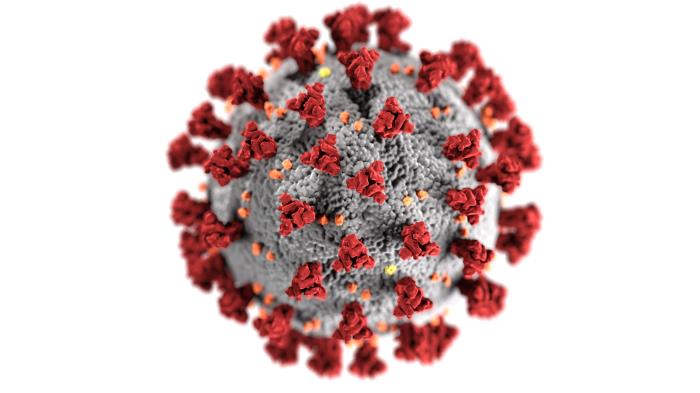Nigeria Centre for Diseases Control has confirmed 1,483 COVID-19 cases, bringing the total to 118,138 in the country.
NCDC also reported five new COVID-19 deaths, bringing the total to 1,490 since the outbreak of the pandemic in the country in February 2020.
‘’On the 22nd of January 2021, 1483 new confirmed cases and 5 deaths were recorded in Nigeria,’’ it stated on its official Twitter handle of Friday, January 22.
The new confirmed cases were reported in 22 states including Federal Capital Territory with Kaduna leading with 545, FCT (235), Plateau (127), Nasarawa (80), Oyo (72), Delta (65), and Rivers (64).
Others were Kano (46), Ogun (46), Bayelsa (30), Gombe (30), Abia (28), Osun (27), Edo (25), Ondo (14), Sokoto (12), Zamfara (10), Bauchi (8), Imo (5), Jigawa (4), Ekiti (4), Borno (4) and Niger (2).
‘’A multi-sectoral national emergency operations centre (EOC), activated at Level 3, continues to coordinate the national response activities
‘’Our discharges today include 798 community recoveries in Lagos State and 191 community recoveries in Ondo State managed in line with guidelines,’’ the public health agency said.
Meanwhile, the World Health Organisation (WHO) Regional Office for Africa in Brazzaville, Congo, says there are over 3.3 million confirmed COVID-19 cases on the African continent.
The UN health agency gave the update on its regional official Twitter on Friday.
WHO stated on its dashboard that there were over 3.3 million confirmed COVID-19 cases on the African continent – with more than 2.8 million recoveries and 82,000 deaths cumulatively.
In a statement posted on its website, the UN health agency said Africa needed timely access to safe and effective COVID-19 vaccines to combat the virus.
It stated that while the development and approval of safe and effective vaccines less than a year after the emergence of COVID-19 is a stunning achievement, Africa is lagging behind.
“As of early this week, 40 million COVID-19 vaccine doses have been administered in 50 mostly high-income countries.
“However, in Africa, Guinea is the sole low-income nation to provide vaccines and to date, these have only been administered to 25 people.
“Seychelles, which is a high-income country, is the only one on the continent to start a national vaccination campaign,’’ it said.
The statement quoted Dr Matshidiso Moeti, WHO Regional Director for Africa, as saying, “We first, not me first, is the only way to end the pandemic.
“Vaccine hoarding will only prolong the ordeal and delay Africa’s recovery. It is deeply unjust that the most vulnerable Africans are forced to wait for vaccines while lower-risk groups in rich countries are made safe.
“Health workers and vulnerable people in Africa need urgent access to safe and effective COVID-19 vaccines.”
According to the statement, the COVAX Facility – which is co-led by the Coalition for Epidemic Preparedness Innovations (CEPI), Gavi, the Vaccine Alliance, and WHO – has secured two billion doses of vaccine from five producers, with options for over one billion more doses.
The statement also quoted Thabani Maphosa, Managing Director, Country Programmes, GAVI, as saying, “COVAX is on track to start delivering vaccine doses and begin ensuring global access to vaccines.
“As the largest vaccine buyer in the world, procuring more than two billion doses annually for routine immunisation and outbreak response on behalf of nearly 100 countries, UNICEF is coordinating and supporting the procurement, international freight and delivery of COVID-19 vaccines for the COVAX Facility.
“This is the biggest, most sophisticated ground operation in the history of immunisation. “UNICEF is stockpiling one billion syringes and buying 10 million safety boxes so that used syringes and needles can be disposed in a safe manner by personnel at health facilities, thus preventing the risk of injuries and blood borne diseases,” it stated.
The statement quoted Mohamed Fall, UNICEF Eastern and Southern Africa Regional Director, as saying, “UNICEF has put in place a global network of freight forwarders.
According to the statement, all the 54 countries on the continent have expressed interest in the COVAX Facility.
“Eight higher and middle-income countries will self-finance their own participation, while lower-middle income and low-income countries will access the vaccines at no cost through the Facility.
“The vaccines distributed by COVAX will have received WHO Emergency Use Listing authorisation and as such will have undergone stringent validation of their safety and effectiveness.
“However, vaccine nationalism is threatening the COVAX initiative. “The COVAX initiative has raised six billion US dollars in pledges but needs an additional 2.8 billion US dollars in 2021 and WHO and partners are urging countries and donors to contribute and help end the pandemic globally,’’ it said. (NAN)

